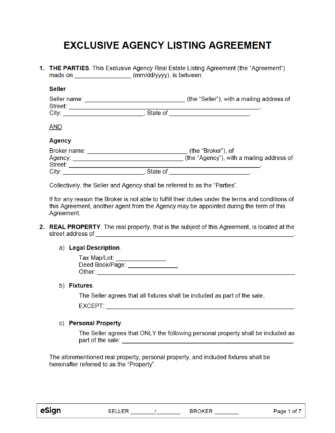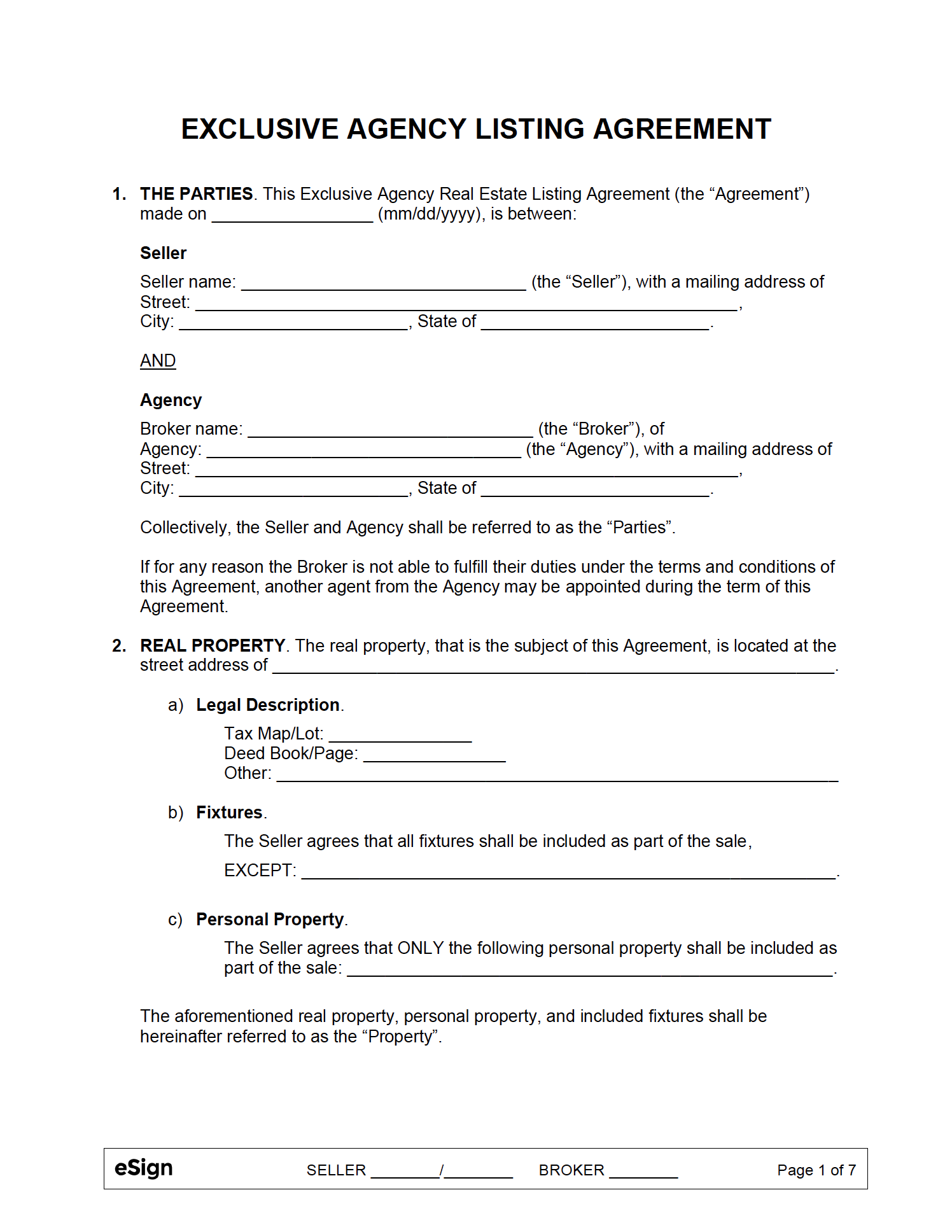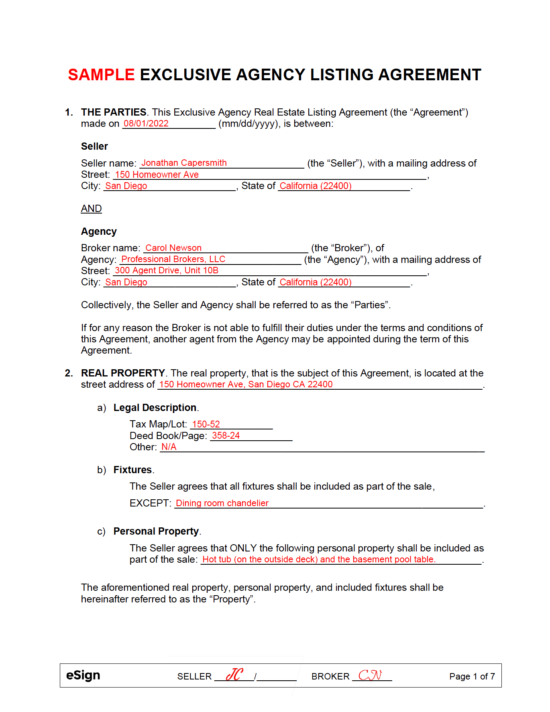
What’s Included
Party Information
Identifying the parties is the first step of completing a listing agreement. The contact information of the seller and broker must be provided, including the name of the broker’s agency.
Property Description
To ensure there is no confusion as to which property is being listed, the parties must provide a specific property description. This will be comprised of the address, the tax map and lot number, the book and page number where the deed can be found, and any other relevant information.
Exclusivity
By signing an exclusive agency listing agreement, the seller agrees that the agency will receive a commission ONLY if the broker finds a buyer willing to purchase the property. The seller is not within their rights to use another broker/agency; however, if they find a buyer without the broker’s direct assistance, they are not obligated to pay a commission to the agency.
Listing Price
The listing price, or “purchase price,” is the amount of money that the seller and agency will agree upon beforehand as the purchase price of the property. The agency will offer advice and expertise in this matter, as they are well versed in current market pricing, the neighborhood and surrounding area, and the value of properties in general.
Listing Period
The term of the agreement is an important provision, as it sets the amount of time (typically between one to twelve months) the broker will be working to sell the property for the owner. If they are responsible for finding a buyer within that time frame, they will receive a commission. There is also the possibility of setting up a listing period extension, which is a set number of days after the expiration date where the broker will still be within their rights to receive a commission if a buyer is found.
Commission
The commission owed to the agency is the amount of money they will receive if they were directly responsible for finding a buyer and did so within the listing period. A percentage of the total purchase price is the most common type of commission, but the parties may decide on a fixed-commission amount that will not be affected by the sale price of the property.
Dual Agency
There are a few states that have made dual agency illegal, as the act of representing both the buyer and the seller can result in an unfair transaction. If the property is in a state that does allow dual agency, it is ultimately up to the seller whether or not they will permit their broker to act as a dual agent.
Marketing
The agency is tasked with marketing the property to the best of its ability to garner the interest of a vast number of buyers. This section allows the seller to choose which marketing tactics they do and do not want their broker to use.
When to Use
If a homeowner has a pool of potential buyers or wants a more “hands-on” approach in the selling process, an exclusive agency contract could be right for them.
Drawbacks
With increased control comes the drawback of the agent being less motivated, due to the risk of not getting paid a commission should the seller find a buyer on their own. It’s for this reason that real estate agents prefer signing exclusive right-to-sell agreements, and will likely push for this type of listing agreement.
Can exclusive agency agreements be listed in the MLS?
Yes, and per NAR’s Policy Statement 7.4, MLS platforms are legally required to allow them.
Sample Form
Download: PDF


